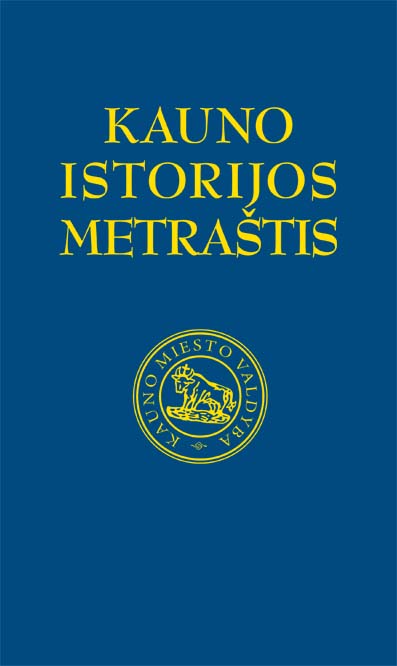Vermachto kareivių ir karininkų laisvalaikio Kaune atspindžiai dienraštyje „Kauener Zeitung“
The Reflexions of the Leisure of Wehrmacht Soldiers and Officers in Kaunas in the Daily "Kauener Zeitung"
Author(s): Roberta BartkutėSubject(s): Local History / Microhistory, Military history, Fascism, Nazism and WW II
Published by: Vytauto Didžiojo Universitetas
Keywords: The Nazi occupation; Kaunas; Wehrmacht;Collaboration;
Summary/Abstract: In this article the analysis of the leisure of the Wehrmacht Soldiers and Officers 1941-1944 is based on the publications in the daily „Kauener Zeitung“ the readers of which were mostly Germans living or stationed in Kaunas. The leisure activities and its places of the German garrison in Kaunas (Kauen) are divided into two parts. To the first group belong such entertainments and establishments where Germans used to be amused or amuse itself in the homogenous (to some extent) entourage in regard to the ethnicity (German inns, „Soldatenkino“, „Soldatentheater“, sport activities). To the second group are attributed such pastimes or locations where interaction between Germans and Lithuanians could not be avoided (common inns, libraries, sport evens, concerts). This principle has been chosen in order to find out whether it is possible to root up the manifestations of the Lithuanian collaboration with Germans during the freetime of the latter, based on the moral aspect of collaboration by V. Tininis. The analysis of this paper affords ground to draw a conclusion that Lithuanian artists contributed to the legitimation of the occupation regime and encouraged to support German war machine when they advantaged to the Winter Relief of the German People (by promoting to by tickets to their concerts the profit of which was devoted to the mentioned organisation) or under other circumstances amused Wehrmacht soldiers or officers. Due to this reason in order to describe such activities the author of this paper is inclined to use the opposite analogy of the cultural (passive) resistance concept, that is the cultural (passive) collaboration.
Journal: Kauno istorijos metraštis
- Issue Year: 2019
- Issue No: 17
- Page Range: 197-211
- Page Count: 15
- Language: Lithuanian

